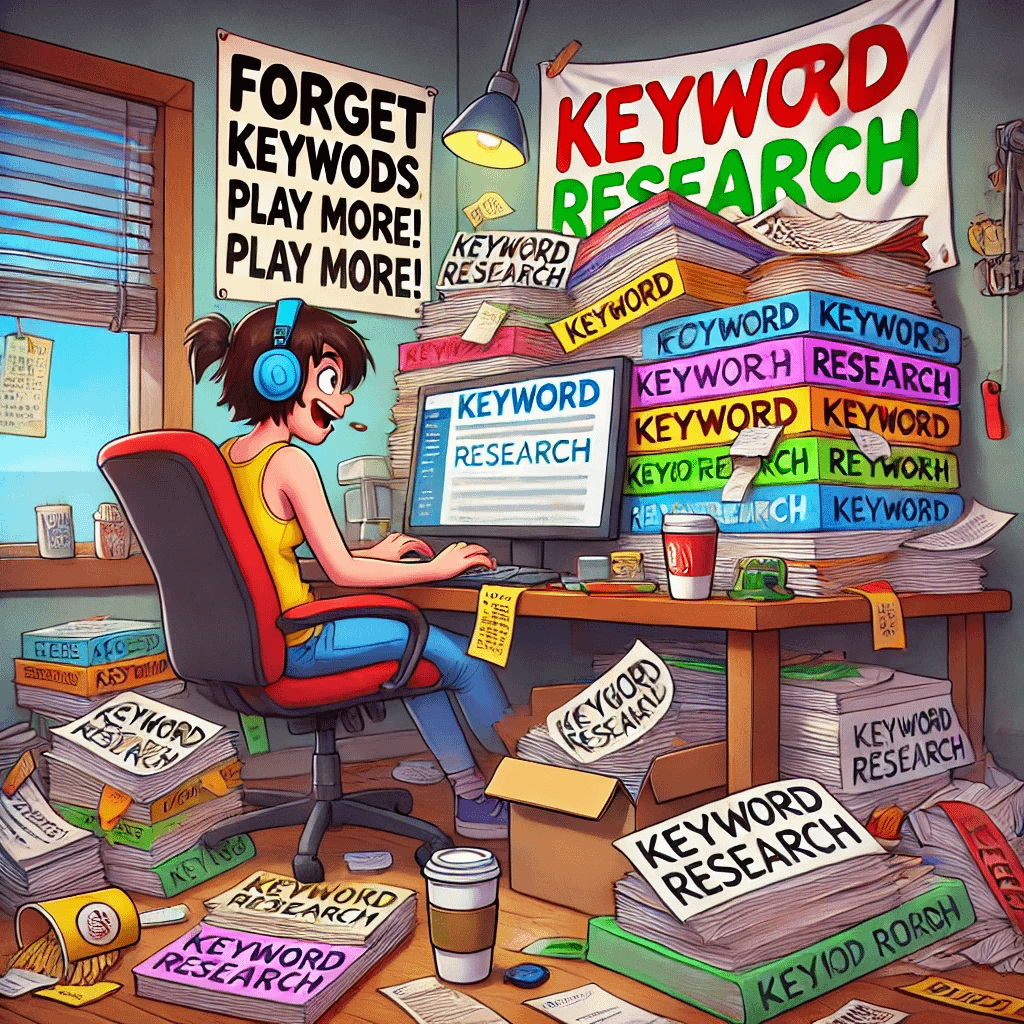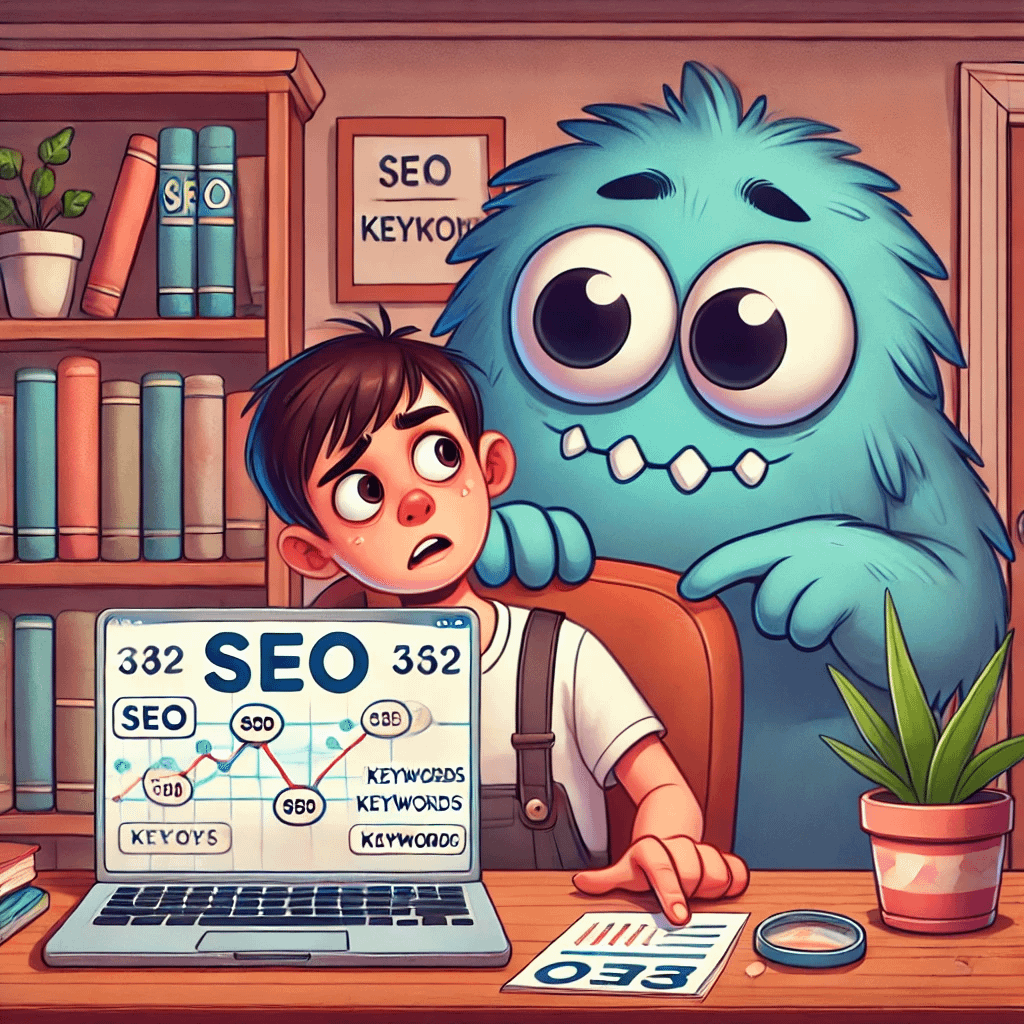
The Top 10 SEO Mistakes Beginners Make
And How to Avoid Them
Embarking on the SEO journey can be daunting for beginners. It’s a field rich with potential to grow your online presence but also fraught with the possibility of mistake and wrong turns that can hinder your progress.
Understanding common SEO mistakes can help you avoid them and set a strong foundation for your website’s search engine performance. Here’s a breakdown of the top 10 SEO mistakes beginners often make, and tips on how to steer clear of these pitfalls.
1. Ignoring Keyword Research
Mistake: Many beginners underestimate the importance of keyword research and either use overly generic keywords or keywords that are too competitive.
Solution: Spend time using tools like Jaaxy, Google Keyword Planner or Moz Keyword Explorer to find relevant keywords that have a good balance of search volume and competition. Focus on long-tail keywords as they are less competitive and more targeted.

2. Overlooking Title Tags and Meta Descriptions
Mistake: Neglecting to customize title tags and meta descriptions can lead to poor click-through rates because these elements directly impact how your pages are viewed in search results.
Solution: Write concise and compelling title tags and meta descriptions for each page, incorporating your target keywords. Keep title tags under 60 characters and meta descriptions about 155 characters.
3. Creating Low-Quality Content
Mistake: Publishing content that is not useful or relevant to your audience can hurt your SEO, as quality content is a major ranking factor for search engines.
Solution: Focus on creating content that provides value to your readers. Ensure it is informative, well-written, and relevant to their interests. Always aim for originality and depth in your content to engage users and encourage them to spend more time on your site.
4. Neglecting Mobile Optimization
Mistake: With the increasing use of mobile devices to access the internet, ignoring mobile optimization can result in a significant loss of traffic.
Solution: Ensure your website is responsive, meaning it adjusts smoothly to different screen sizes. Google’s Mobile-Friendly Test can help you identify areas of your site that need improvement for mobile usage.
5. Forgetting About Local SEO
Mistake: Beginners often focus on global SEO and forget about the potential of local search, which can be a significant traffic driver especially for small businesses.
Solution: Optimize your website for local SEO by including local keywords, registering with Google My Business, and adding your business to local directories.
6. Using ‘Black Hat’ SEO Techniques
Mistake: Resorting to unethical SEO practices like keyword stuffing, cloaking, or using private link networks can lead to penalties from search engines.
Solution: Stick to ‘white hat’ SEO techniques. Focus on your human audience and follow search engine guidelines to build your SEO strategy.

7. Ignoring Analytics
Mistake: Not setting up or reviewing analytics to track website traffic and behavior patterns leads to missed opportunities for optimization.
Solution: Use tools like Google Analytics to monitor your website’s performance. Analyze visitor behavior, and use these insights to optimize your site.
8. Poor URL Structure
Mistake: Using URLs that are long, have no relevance to the content, or are filled with unnecessary parameters can confuse search engines and users.
Solution: Create simple, readable URLs that include keywords and convey content information at a glance.
9. Inadequate Link Building
Mistake: Ignoring the importance of building internal and external links, or building links too aggressively, can impact your SEO.
Solution: Develop a strategy to gain quality backlinks naturally through great content, guest blogging, and partnerships. Also, use internal linking wisely to help search engines and users navigate your site.
10. Not Updating Content
Mistake: Failing to update or refresh old content can lead to a drop in rankings as search engines prefer fresh, relevant content.
Solution: Regularly review and update your existing content to keep it current and relevant. This can involve updating statistics, adding recent information, or revising outdated details.

Conclusion
Avoiding these common SEO mistakes can significantly enhance your website’s search engine performance. SEO is a long-term investment that requires patience, persistence, and continuous learning.
Start by understanding these basics and build on them as you grow more comfortable with SEO practices. By avoiding these pitfalls, you’ll be better positioned to optimize your site effectively and achieve sustainable success in your online endeavors.
Here’s a little transparency: My website contains affiliate links. This means if you click and make a purchase, I may receive a small commission. Don’t worry, there’s no extra cost to you. It’s a simple way you can support my mission to bring you quality content.”







